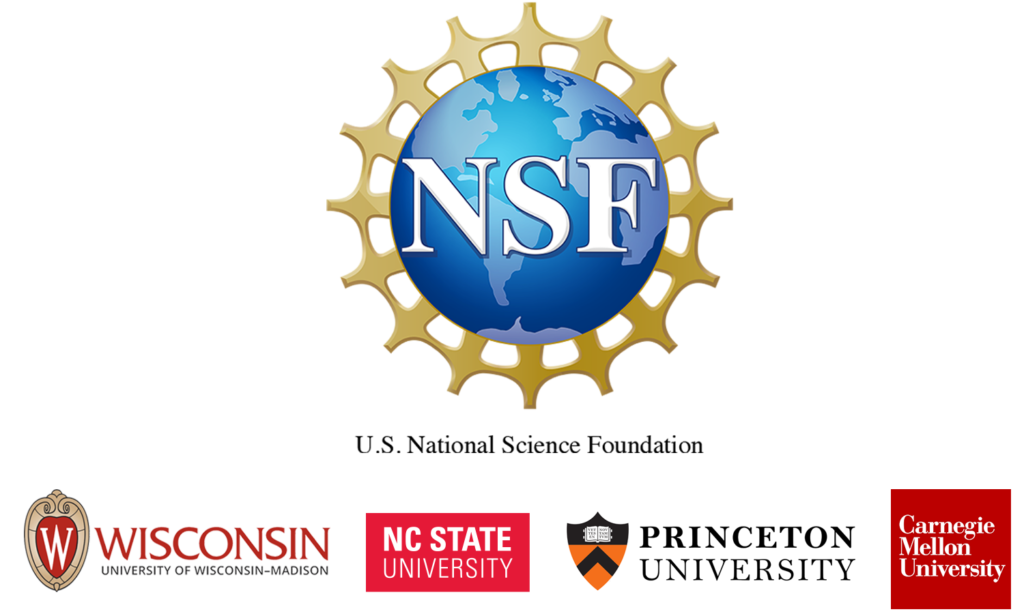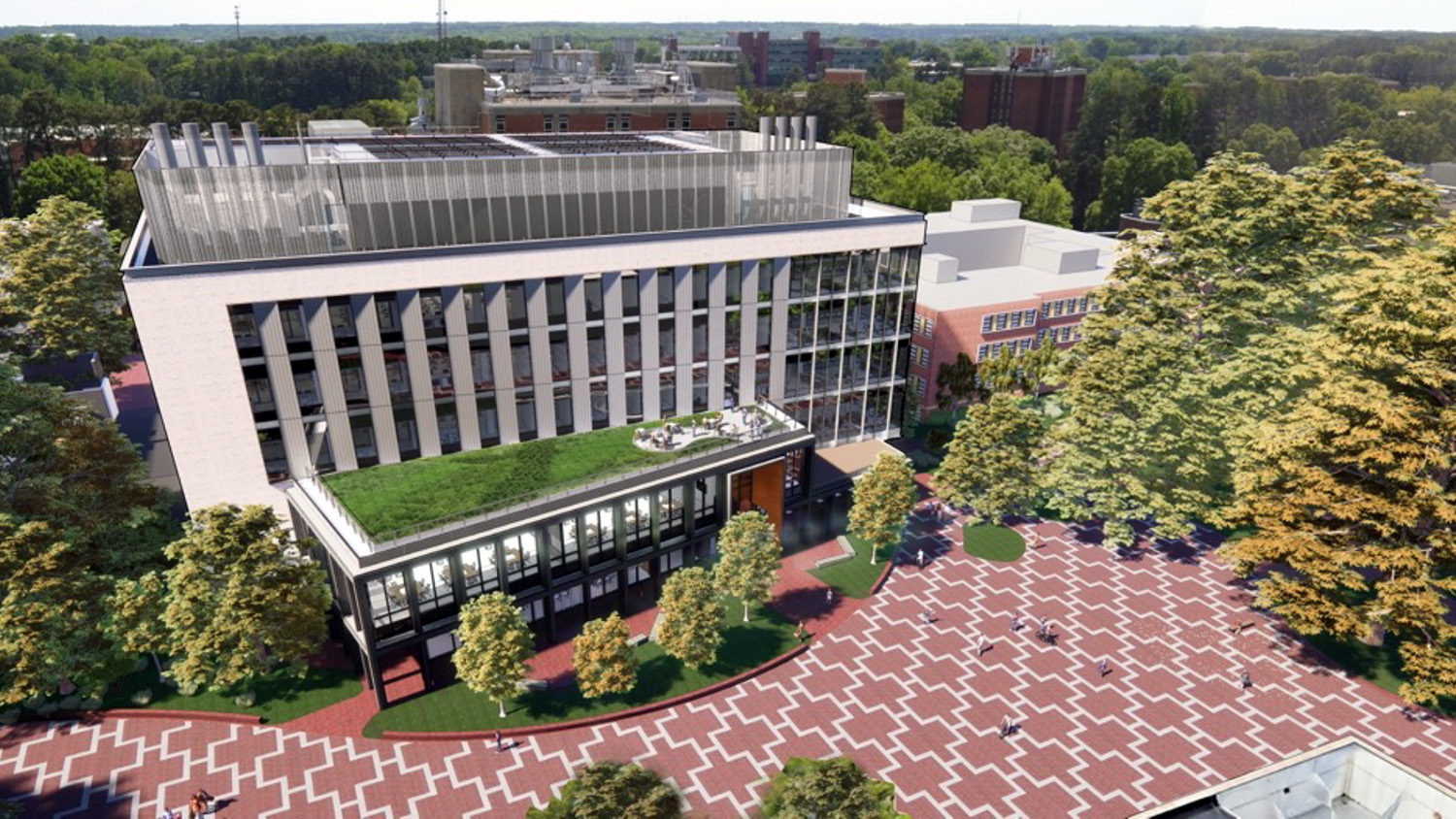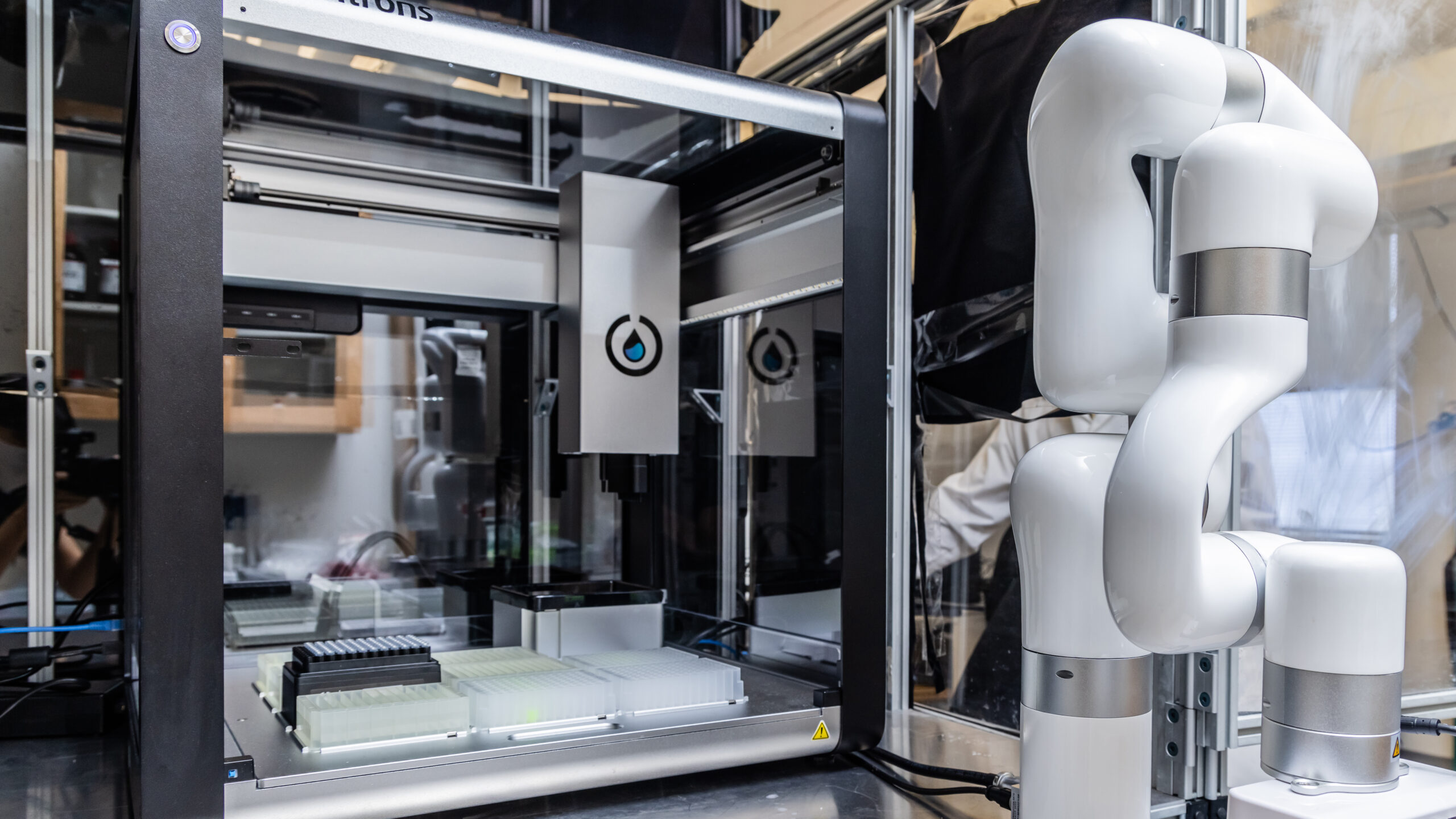About the Center for Accelerated Photocatalysis
Learn more about the Center for Accelerated Photocatalysis and how we’re shaping the science around self-driving labs.
Progress and Potential
The combination of self-driving laboratories with experimental planning guided by machine learning has the potential for augmenting human knowledge with insights that will accelerate discoveries. The focus of the new NSF Center for Accelerated Photocatalysis on discovering fundamentally new synthetic pathways using light-driven catalysts could enable important advancements that address long-standing challenges in this field.
Despite the proven role of photochemistry in sustainability and pharmaceuticals, progress in this high-priority area has been slow due to labor-intensive, one-experiment-at-a-time approaches that present significant time and resource constraints. CAPs will fast-track fundamental studies of emerging photo(bio)catalysis in chemical synthesis and reaction discovery by implementing a robotic ‘co-pilot.’
This ‘co-pilot’ will harness machine learning (ML) and robotic experimentation to augment human knowledge in photo(bio)catalysis. CAPs activities will include open-source reporting for all software and data generated, as well as a summer boot camp for high school students and teachers. The center will also emphasize engaging undergraduate and graduate students with physical disabilities in SDL experiments and developing short videos and science presentations for public events.
Partners


